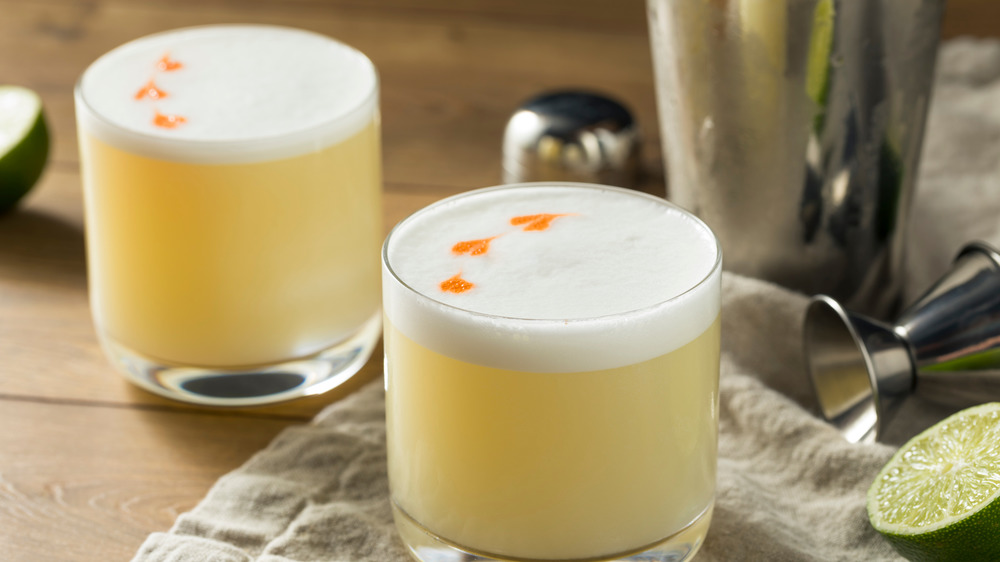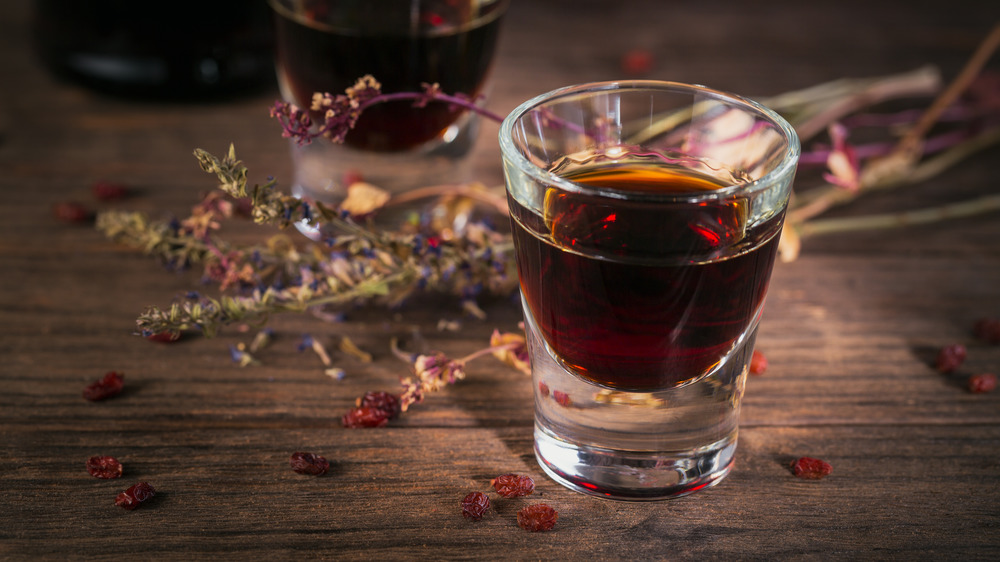These Are The Best Bitters For Home Bartenders
Despite what your ex says, being bitter is not such a bad thing. In fact, some of your favorite cocktails probably have a dash or two of bitters in them, and — like the seasoning on a dish — it's the bite of bitters that takes your drink from good to great. When you're setting up your home bar, think of the liquors as the entrees, the mixers as the side dishes, and the little bottle of bitters as the salt and pepper. They may be small, but they're going to add depth of flavor that your cocktail wouldn't be the same without.
The two bitters you've likely heard of are Angostura and Peychaud's, classics that top Eater's recent list of bartenders' best bitters (say that three times fast after a couple of martinis). These friendly looking little bottles are on every bartender's shelf for a reason: they are staple ingredients in some key cocktails (think: Manhattans, Mai Tais, and Sazeracs) and their bitterness adds spice and complexity to any drink they meet. Tell that to your ex.
The bitter, the better when it comes to bitters
Aromatic bitters like Angostura and Peychaud's aren't your only choices when it comes to bitters, though. Thanks to the rise in craft cocktails, fans of bitters are now spoilt for choice when it comes to herbal, citrus, and cocoa varietals, and there are dozens of other flavors on the market to tickle your tastebuds. Bitters are made by combining a bitter-tasting herb or plant with a "carrier;" most often, alcohol. A neutral alcohol, like vodka, extracts the essence of the bitter, while giving the final product a stable shelf life, as well (via Healthline).
According to Healthline, bitter is one of the seven basic tastes for a good reason: many toxic, poisonous things are bitter-tasting, and our body has conditioned responses to help keep us safe when it senses danger. So, when you eat something bitter, receptors in your digestive track sound the alarm, and start to produce secretions that will aid digestion and pump up nutrient absorption, and sometimes they'll even send a signal to your brain to de-stress. We're not saying that if early cavemen made Manhattans out of poisonous plants that they would have been better off, but you know...they definitely would have been less stressed.

